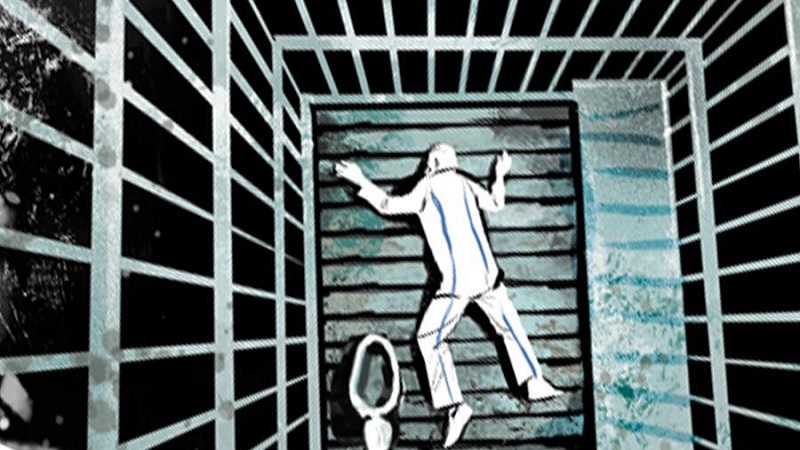 Image Courtesy:newindianexpress.com
Image Courtesy:newindianexpress.com
The Orissa High Court has directed the state government to pay compensation of Rs. 5 lakhs to the parents of a man who died while in police custody, 15 years ago. The bench headed by Chief Justice S Muralidhar and comprising Justice Biswajit Mohanty held that the police failed to immediately rush the deceased for medical treatment and that amounted to criminal negligence under constitutional tort.
Background
The petitioners’ son was apprehended by the police around 2 AM on June 6, 2005. The next morning at 10.30 AM the Police informed the Petitioners that Manoj had been taken to Sadar Hospital, Dhenkanal. He was then moved to SCB Medical College, Cuttack on advice of doctors and he died on the way. The Petitioners on June 7, 2005 wrote to the District Superintendent of Police, Dhenkanal to take strong action against the concerned police personnel of the Town Police Station (PS) of Dhenkanal for custodial torture of their son.
The police contended that the deceased had entered into a foreign liquor shop in a drunken state by making a hole in the asbestos roof; that he fell down from the roof to the floor and thereafter started making unusual sounds. He was brought to the police station in the early hours and kept in the verandah for verification. Sometime later, he complained of pain in his abdomen and started vomiting and he was shifted to hospital for treatment.
Affidavit filed by Deputy Superintendent of Police (DSP), H.R.P.C., in December 2019 stated that after necessary investigation, on December 26, 2008 the final report was submitted as Mistake of Fact. The report states that Manoj ‘was made to sit on the police station verandah and was detailed there with an impression that he was under influence of liquor and will be interrogated after coming to normal condition.’
Court’s observations
The court observed that “although Manoj was brought to the PS admittedly at 3.20 AM, and in a physically precarious condition, for over five and a half hours thereafter i.e. till 8.50 AM no one bothered to even attend to him.”
Additional Government Advocate, S. Pattanayak submitted that despite several opportunities and notice to the petitioner, they did not file protest petition against the closure report filed by the police and hence the Magistrate Court accepted the closure report stating mistake of fact, in 2012. The position that emerged at the conclusion of the investigation was that there was nothing to prove that the death was a ‘custodial death’ caused by the police.
The court observed that this does not absolve the police of their responsibilities of ensuring timely medical help to a person, who had obviously been arrested and brought in a condition of pain to the police station. The court held that this was inexcusable negligence on part of the police and pointed out, “When on their own showing the police on breaking open the foreign liquor shop found the deceased on the floor writhing in pain, there was no justification in keeping him in the PS in their custody without any medical attention from 3.20 AM to 9 AM.”
Court’s findings
The post mortem report had shown cranio-cerebral injuries as cause of death and the police claimed it was caused due to the fall from the liquor shop roof. The court held that even if the injuries were due to the fall, he required immediate attention and the deceased should have been given medical treatment immediately and that the six-hour delay proved to be fatal.
“Once a person is in the custody of the police, the security of that person’s life and liberty is in their hands. They are answerable for whatever happens to the person in their custody,” held the court.
The court relied on many judgments of the apex court including one In re Death of Sawinder Singh Grover 1995 Supp (4) SCC, 450 whereby the detenu had jumped to his death while in custody. The Supreme Court had directed the Union of India as well as the ED to pay Rs. 2 lakhs as compensation to the widow of the deceased. After citing such judgments, the court observed, “The liability of state functionaries for acts of omission or commission constituting constitutional tort was extended to deaths or violence that occurred, not necessarily at the hands of the officials, but while in their custody.”
Decision
For awarding compensation in cases of custodial deaths, the court relied on In Re-Inhuman Conditions in 1382 Prisons reported in (2017) 10 SCC 658 whereby the apex court had held, “Once the issue is looked at from this perspective, it will be appreciated that merely because a person is accused of a crime or is the perpetrator of a crime and in prison custody, that person could nevertheless be a victim of an unnatural death. Hence the need to compensate the next of kin.”
The court held that the police are to be held liable for the avoidable death of Manoj on account of negligence and stated, “Even if it is not established that the ante mortem injuries found on his person during post-mortem were caused by the Police, the law of strict liability for the negligence of the police in not meeting the basic minimum standard of care in providing him prompt medical attention would stand attracted.”
While deciding the quantum of compensation, the court took into consideration that the petitioners belonged to an economically weaker section and that they had to wait for over 15 years for justice.
The complete judgment may be read here
Related:
Bom HC seeks inquiry documents in custodial death case of life convict found hanging in cell
Kutch: Man allegedly killed in police custody, accused cops absconding
Prima facie attempt to safeguard prison officials: Kerala HC on Custodial Torture Report